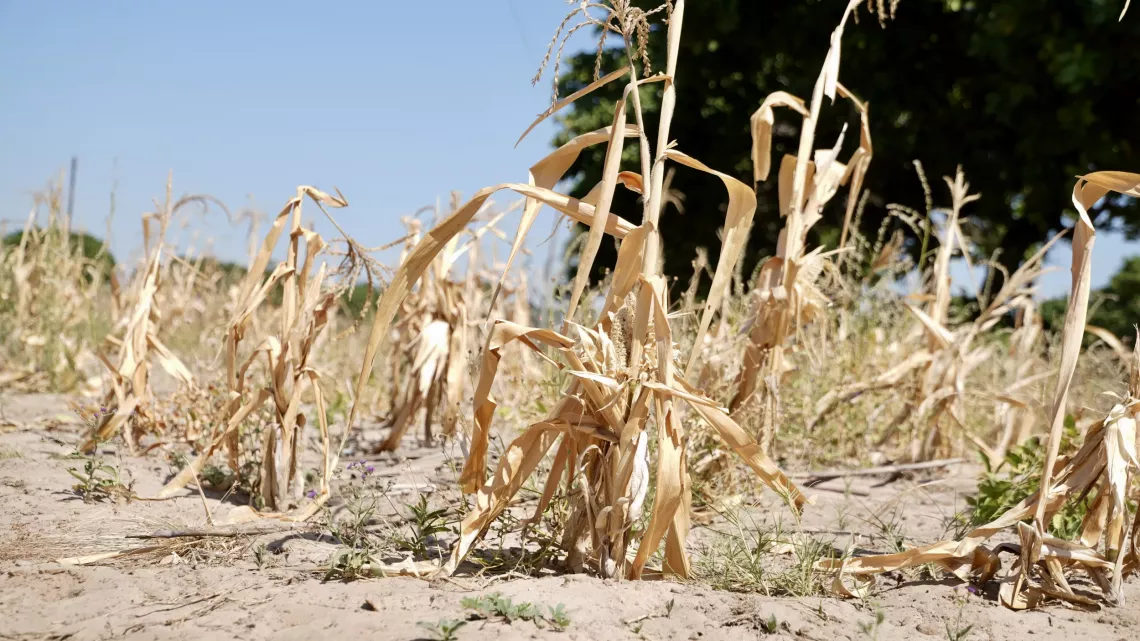Cultivating Seeds of Change

In Zambia’s drought-stricken Kalabo district, amidst widespread crop failures, Mr. Kasamba Namasiku stands as a beacon of hope. Trained under the SUN II program, he’s employing drought-resistant seeds and innovative farming techniques to combat the effects of El Niño. Despite challenges like armyworms and manual watering, Namasiku’s efforts are not only sustaining his farm but also empowering his community through knowledge-sharing and sustainable practices. His resilience underscores the transformative potential of agricultural innovation in challenging climates.
In the parched lands of Kalabo district, where maize crops have withered under the relentless sun and dry earth, one farmer stands as a source of hope and resilience. Mr. Kasamba Namasiku, a lead farmer trained under the Scaling Up Nutrition Phase 2 (SUN II) programme, is transforming the landscape of subsistence farming amidst one of Zambia’s worst droughts.
Kalabo, a district severely impacted by drought, has seen up to 100 percent maize crop failure. The Government of Zambia declared a state of emergency in February, as over 72% of the country suffers from the El Niño-induced drought, affecting millions, including 3.5 million children. Yet, in this challenging environment, Mr. Namasiku’s farm is a testament to the power of knowledge and innovation.
Embracing New Methods
Mr. Namasiku has been trained by the Ministry of Agriculture and technical partner FAO under SUN II to use drought-resistant seeds, multiply seeds like orange maize, and grow diversified crops and vegetables such as orange-fleshed sweet potatoes and good agriculture practices. These skills have not only sustained his farm but have also become a lifeline for his household and the community.
“In the past, I relied solely on rain-fed maize, which failed last season due to the drought,” Mr. Namasiku recounts. “But with the knowledge and seeds provided by the SUN II programme, I was able to plant winter maize in the wetlands and so far so good.”
Despite this, the journey has not been without challenges. Watering the maize, which grows in “dambo (mwa libala)” areas as they are popularly referred to amongst the locals, requires immense effort. “When the maize grows to a certain height, it becomes very challenging to water it using 20-liter containers from the shallow well nearby because the rows of maize are planted very close together,” explains Mr. Namasiku. “It takes a lot of manpower, but we do it because it means food on our tables. But after a certain height, we can no longer water the maize using hand methods, so we just hope for the best”
Combatting Pests Naturally and Storage Techniques
Another hurdle has been the infestation of armyworms, which have the potential to devastate entire crops. Lizzy Mangani, a camp agricultural officer, supports Mr. Namasiku and other farmers by teaching them botanical ways to combat pests using natural plants like Chili, Neem, and Moringa. “These plants are not only good for the environment but also effective against pests,” says Ms. Mangani. “Chemical pesticides are expensive and harmful, so we promote organic solutions.”
Mr. Namasiku was trained in storage techniques and supported with a plastic silo bin as lead farmer to protect the seed for future planting seasons by UN technical lead on this WFP, but sadly, the bin is empty and void of any maize seed.
Spreading the seeds
Mr. Namasiku’s commitment to his community extends beyond his own farm. Using the orange-fleshed sweet potato vines provided by the programme, he has passed on 50 kg of vines to seven households, helping other farmers, especially mothers, grow their own crops. This not only ensures food security but also enhances dietary diversity, combats child malnutrition, pressing issues in Zambia, where one million children are stunted and only 1 in 10 children are fed with recommended diet.
A Hopeful Future
In the face of climate change and extreme weather, Mr. Katembwa Namasiku’s community spirit offers a glimmer of hope in Kalabo, demonstrating that with the right support and knowledge, resilience can bloom even in the harshest conditions.
“Farming is more than just a livelihood,” Mr. Namasiku reflects. “It’s about nurturing our land, feeding our families, and empowering our community. Together, we can overcome any challenge.”
As Zambia navigates these difficult times, Mr. Namasiku’s story serves as a powerful reminder of the impact that dedicated individuals can have on their communities and the importance of sustainable practices in securing a better future for all.
Source Link: https://www.unicef.org/zambia/stories/cultivating-seeds-change
















